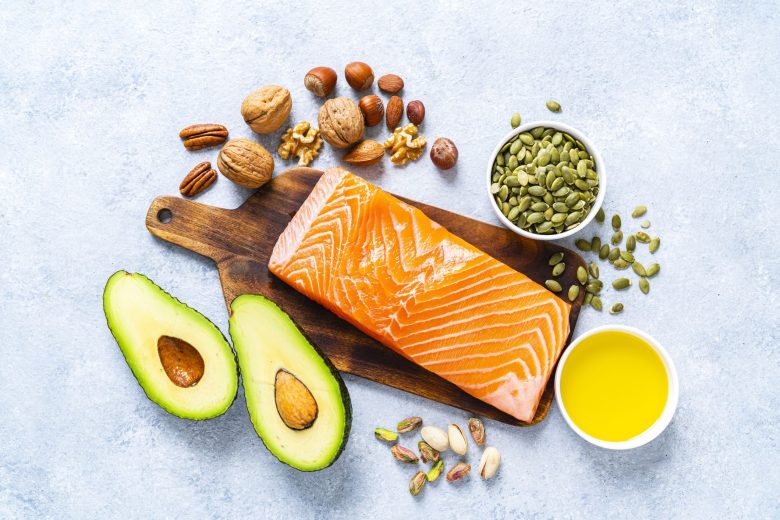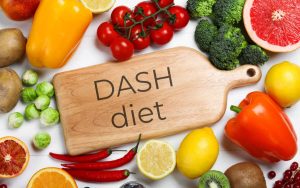Fat is essential to our bodies—providing energy, helping absorb certain vitamins, and providing structure to support brain, muscle, and nerve function. But it’s essential to recognize healthy from unhealthy fats due to how their molecular configuration influences how they act within our bodies. Unhealthy fats include saturated (red meat, butter, and high-fat dairy foods) and industrial trans fats, which may increase disease risk. By contrast, unsaturated (vegetable oils, nuts, and fish) fats provide healthful alternatives.
1. Avocados
Avocados stand out among fruits as a source of healthy monounsaturated fats—most notably monounsaturated varieties—making half an avocado count toward one of your five daily fruit servings and also providing potassium, folate, and fibre benefits.
Avocados contain predominantly monounsaturated fat, such as oleic acid, which is heart-healthy. Furthermore, avocados provide potassium, which lowers blood pressure by reducing sodium levels and relaxing blood vessel walls. Furthermore, avocados also provide antioxidants like lutein and zeaxanthin, which improve eye health—an added bonus! They make healthy diets even more delicious; add them to salads, sandwiches, and grain dishes for texture, flavour, and satisfaction!
2. Chia Seeds
Healthy fats provide an instantaneous feeling of fullness, reduce digestion speed, and add flavour. Furthermore, they support hormone balance as well as aid absorption of certain nutrients—making avocados, olive oil, chia seeds, and fatty fish an excellent source of monounsaturated and polyunsaturated dietary fats.
Chia seeds (Salvia hispanica L.), native to Mexico and Guatemala, are edible seeds of a mint family plant found there that is used as a food source from pre-Colombian times. Research shows that diets rich in chia seeds increase alpha-linolenic acid and eicosapentaenoic acid concentrations in the bloodstream.
3. Extra Virgin Olive Oil
EVOO is widely appreciated for both its flavour and health benefits. It contains heart-friendly monounsaturated fat, known as oleic acid, as well as numerous antioxidants that may provide protection.
Studies show that people who consume more olive oil have a reduced risk of cardiovascular diseases and stroke. This may be attributed to its anti-inflammatory and vasodilator effects. Another health benefit may be helping prevent type 2 diabetes. Its phenolic compounds may improve insulin sensitivity and increase cell glucose uptake (14)
4. Full-Fat Yogurt
Food labels may seem intimidatingly complex when it comes to fats, yet many delicious products contain healthier types – for instance full-fat yogurt is an excellent source of healthy fats!
One cup provides an abundance of saturated fat (around 7 grams). Though flavoured yoghurt may contain more sugar than plain, opting for plain can reduce added sugars and sweeten it up with some granola or fresh fruit to give it some flair. Plus, plain contains plenty of calcium essential for strong bones…and best of all? it tastes amazing!
5. Nuts
Nuts are an excellent source of heart-healthy fats, particularly monounsaturated and polyunsaturated fatty acids, along with phytochemicals and other essential nutrients. Numerous epidemiologic studies indicate that regular nut consumption may reduce cardiovascular risk factors and mortality rates associated with CHD. [43, 45]
Take in a handful of nuts each day—up to 1 ounce—in order to reap their healthful advantages. They can be added to salads, hot or cold cereal, nonfat yoghurt, pasta dishes, pancake batter, muffin batter recipes, and bread products for optimal nutrition. But be careful not to overindulge, as nuts contain lots of calories and are an excellent source of protein!
6. Seeds
Seeds like chia, flax, and pumpkin seeds contain healthy fats as well as fibre for added nutrition. You can easily incorporate them into oatmeal, yoghurt, and salad dishes or roast them as a tasty snack! They contain plenty of dietary fibre, omega-3 and omega-6 fatty acids, antioxidants, minerals, phytochemicals, and more, making them an excellent plant-based source of protein that may also help lower total and LDL cholesterol as well as blood pressure levels.
Nuts tend to be more widely eaten than seeds, but that shouldn’t detract from their importance in maintaining good health. Seeds contain many essential macro and micronutrients and should be included regularly for maximum effect. Each seed variety offers unique health benefits.
7. Fish
Fats add texture and flavour to foods while playing an important role in hormone function and nutrient absorption. While old nutrition research advised against saturated fats, recent research indicates they may actually have neutral effects on cholesterol and heart disease risk.
Fish, olive oil, and nuts are among the best sources of healthy fats; however, all fats contain different types of fatty acids and should be consumed in moderation. One gram of fat provides 9 calories; this should be kept in mind when selecting foods high in healthy fats since many contain excess calories.
8. Seed Oils
Many are confused by seed oils after hearing false claims on social media that these popular cooking fats are toxic. Common seed oils (canola, corn, cottonseed, soybean, and sunflower) typically contain omega-6 fatty acids like linoleic acid, which, when consumed excessively, can disrupt hormonal balance by producing pro-inflammatory chemicals known as eicosanoids and disrupt hormonal equilibrium.
Reducing consumption of seed oils is often recommended, yet some experts feel that their recent rise may just be another fad in wellness. When used appropriately—olive oil for salad dressing, avocado oil for sautéing, and coconut oil for baking, for example—seed oils can actually support healthy hormone levels by maintaining equilibrium within their bodies.
9. Nut Butters
Nut butters are spreadable foods made of crushed or blended nuts such as peanuts, almonds, cashews, and hazelnuts, or seeds such as sesame and chia. Nut butters provide protein, healthy fats, and magnesium. Nut butters can be used on sandwiches as a spreadable ingredient or added into recipes that call for dairy milk or cream as part of an alternative source of nutrition.
Peanut, almond, and sunflower seed butters are excellent choices when looking for LDL-lowering nut butters that feature more polyunsaturates than saturated fats. Some nut butters, particularly peanut, are enhanced with lecithin and mono-diglycerides to minimise oil separation in their jar, thus maintaining smooth texture and less cholesterol content than plant-based butters.




